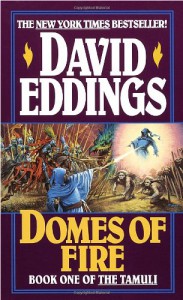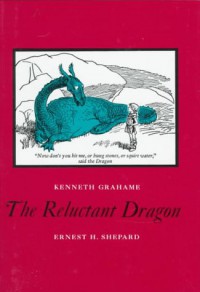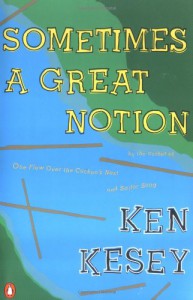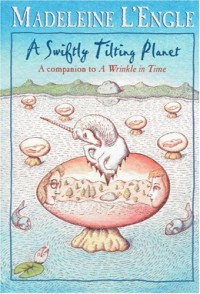Level up!

Book 4/6 of my favorite series.
You would think that after destroying an evil god, saving a princess, and generally kicking the forces of evil's collective butt, that Sparkhawk would be done. Instead, he's got strange new countries to visit and new adventures.
I'm so glad we get to spend time with Stragen, Mirtai, queen Betuana, Elron, Empress Elysoun, Caalador, and Princess Danae (just to name a few). Ulath hates sieges, yet
(show spoiler)and they have
(show spoiler)in this book. The business at the end with
(show spoiler)is one of my favorite scenes in all these books.
Plus, we've got Elysoun vs. Berit, and Emperor Sarabian, who is a force unto himself.
If I ever have twin girls, I'll name them Danae and Aphrael. If it's triplets, Danae, Aphrael, and Flute.

Sparhawk-from-Elenia hunts! Now, go away!
I'll say it again: THIS IS MY FAVORITE BOOK SERIES.
So fun to spend time with these characters. It's especially good to have Queen Ehlana awake in this one. I remember being quite surprised at her personality and ...umm.. assertiveness the first time I read this.
I think that one could read the character of Ehlana as some sort of authorial wish-fulfillment or something, but as I reread these, Ehlana's got her own very distinct and interesting personality, and I can't help but wonder whether she's based on Eddings' wife Leigh. I can tell he's got a lot of love for this character, and I guess I project that on a cantankerous old author.
Well, the book ends more or less how you would expect, but the journey is half the fun...
Maybe except for the twist at the very end about Princess Danae (!) Onwards to the second trilogy!

Following Sparhawk and company on the great adventure. Did I mention these books are my favorites? Don't expect much criticism here...
It's been just long enough since I've read this series that I can't remember all the details of what's going to happen next, but I sure remember the characters.
It's in this book where the character Flute goes from never speaking in one chapter to non-stop chatter for the rest of the series. I don't mind. She's one of my favorites.

A reread of what is possibly my favorite fantasy series by my favorite fantasy author.
Eddings has his faults -- over description of the weather, a tendency to write himself into deus ex machina, and some overreliance on racial prejudices which would be truly awful if we weren't talking about fictional races here (you know-- the whole Tolkien all-orcs-are-evil trope).
But who am I kidding? The reason I love fantasy (and probably the reason you love fantasy as well) is the character drama and interaction. These are fun, funny characters embarking on a fantastical adventure, and I absolutely love every single one of them
List of folks I love:
Sparhawk
Kalten
Kurik
Talen
Berit
Vanion
Dolmant
Sephrenia
Flute
Ulath
Tynian
Bevier
Platime
Arasham
plus I love to hate Annias, Martel, Adus, and Krager as well.
plus plus all the folks (Ehlana, Mirtai, Stragen!, Kring, Danae, etc. etc.) that we encounter in books two through six
What I did not remember was the level of adult content in these books-- nothing shocking, but don't expect me to introduce this to my 9-year-old who is devouring Harry Potter just yet.
Anyways, don't expect anything beyond pure gushing from me over this series. It's like coming home to an old familiar friend. I am SO enjoying this.

Delightful, bite-sized Rushdie.
I would even recommend starting here, or with Haroun and the Sea of Stories.
Nine short stories told by Master Storyteller Salman Rushdie.
Rushdie takes us to the dusty streets of Bombay (or wherever), to Shakespearean England, Rennaissance Spain, and magical futures.
Each story had its own flavor-- no overarching narratives other than the collision of cultures between east and west.
Of course, this is Rushdie's first published work of fiction after The Great Fatwa. Makes me wonder how many of these were composed pre- or post- fatwa.
Anyways, It's good. And short. A nice weekend's palate cleanser.

My first time through King Lear. Some absolutely wonderful prose in there. The story was a touch hard to follow, but I managed okay.
I think the moral of the story is: "Never never never give your kids their inheritance before you die." Lear certainly did this and earned the contempt and resentment from his two daughters while shafting Cordelia, who could have maybe had used some tact while trying to signal to her father that her older sisters were awful.
I did like that the good son of Gloucester was named Edgar (a certain family name)... Edgar was weird, though. Instead of protesting (or proving) his innocence, he just kinda rolled over too.
Maybe I just thought that the characters were too broad, too cartoonish. The pathos and emotion was good, but it's really all over the map.
But who am I to criticize the Bard, really?

Thankfully, I only read excerpts of "Institutes" as part of the huge Great Books set I got from my wife's grandmother: https://www.amazon.com/Foundation-readings-discussion-course-volumes/dp/B000N83EWU .. I've been slowly working through these classics and mostly enjoying every one, but John Calvin seemed to be one of the hardest to slog through. My general impression of Calvin is that he was very rigid and closed-minded. He acknowledges that there are smart and wise people on earth who aren't christian, but then goes ahead and says that you basically have to be a christian in order to gain any knowledge in this world and that everybody else is stupid... Maybe it was my attitude going into this, but I don't think I want to delve any deeper into Calvin's writings. I already knew I didn't like Hobbes. Who knew I would dislike both Calvin and Hobbes?

Another of the ever-expanding books in the Dune universe.
First, I want to take a moment to acknowledge that all the plot lines, all the situations, themes, and everything in all these books sprang forth fully formed in the original book Dune. Dune is a masterpiece. That is all.
This one is no masterpiece, but it's fun. An interesting take on the Butlerian movement and a setup for the world of Dune. I think this second series (Great Schools, starting with Sisterhood of Dune) hews closer to the original intent of Frank Herbert's idea of a Butlerian Jihad (and the fundamental underpinnings of his universe) than the first series did.
The characters seem like unstoppable forces hurtling towards each other: Manford Torondo, Josef Venport, Norma Cenva, Valya Harkonnen, Anna Corrino, etcetera. I was excited to get to this book and see the denouement of how all these folks would interact.
Yes, the ultimate ending was predictable, as is usually the case with prequels, but some of the twists and turns weren't
(show spoiler)
So anyway, that was a book. On to the next one.

Another fun, engrossing read. I like the Brian Herbert prequels. I know not everyone agrees. There's thousands of years of space between these prequels and Dune proper, and I'm surprised at how many stories that can be told.
These books have a lot more in common with the Butlerian Jihad prequel series than any Dune books that come afterwards.
That being said, I'm now retroactively a little disappointed that they've already used the words "Machine Crusade" in the prequel series, because I think the events of this book are more of what Frank Herbert had in mind of the Butlerian Jihad. The dichotomy and balance between Manford Torondo and Josef Venport, with the Emperor right in the middle, is intriguing, and keeps me turning pages.
And yet, there's enough room for these books to surprise me. I certainly wasn't expecting the events that happened at the end of this book. On to the next one!
(again, this book is 4 stars only in deference to the original Dune, which is unapproachable)
When I got this book, I broke my Robert Jordan rule (no unfinished series!) and read it. In hindsight, I wish I hadn't broken the rule.
Nevertheless, this was a good book to read while I was sick, and it didn't ask too much of me. It's been five years, so the characters are familiar without me remembering all the details of what happened to them. I wish I could reread every book I love every five years,
but life is long.
Now, on to the sequels!
 Ahh, it felt good to just throw myself into a book again.
Ahh, it felt good to just throw myself into a book again.This one's quite good.
As an afficionado of the Dune series, especially the prequels, this was a good one-- I even broke my Robert Jordan rule (no unfinished series!) to read this one.
Turns out this is the first in a new series taking place after the Butlerian Jihad series of prequels, so chronologically book 4 in the Dune universe. Luckily, I read that series pretty recently, so the characters are still fresh in my mind.
Since this isn't the first of the prequels, this shouldn't be a starting point for anyone. If you read this, you should have at least read the 3 books in the Butlerian Jihad series. By that point, you should have an opinion as to whether you love or hate the Dune prequels.
For my money, the Brian Herbert/Kevin J Anderson Dune prequels do a LOT less damage to Frank Herbert's amazing universe and legacy than Frank Herbert's books 3-6. If you disagree, well, you're wrong, but you're entitled to your opinion. (Penny Arcade!) You are free to be disappointed in the prequels-- they're a lot shallower and more forumulaic than Frank Herbert's masterpiece, but they're fun adventure reads that certainly do no harm to the original ideas.
Anyway, this book is great for lovers of the Butlerian Jihad prequels. Only 3-4 characters remain from that series, but the world is similar. It's an interesting time-- the imperium is young and weak. People are still uncertain as to the lessons to learn from the fight against the thinking machines, and the universe isn't so static as the next several millenia-- until really the book Dune. There are interesting characters, etc. etc., and enough drama and unresolved tension that I'm not bored reading an (arguably) unnecessary series between familiar points. About the only thing I was disappointed in was I thought the Mentats could've been .... smarter. For being Mentats, they're surprisingly un-Mentat-like-- maybe that's because these guys are the first.
I read it in two days and thoroughly loved it. It's only not 5 stars in deference to the original Dune, which is, unfortunately, always a comparison

Picked this up for a bit of light reading. I don't know if I put it on Booklikes (or if it was in the dark period), but our family LOVED Kenneth Grahame's Wind in the Willows. It was so dreamlike and ....very English.
Anyway, for an american sorta-anglophile, and definitely a fan of old Disney, I was delighted to find out that the Reluctant Dragon was a Grahame book as well. (the rights were acquired in Disney's bid to get Wind in the Willows' rights)
Anyway, unless you're an old disney freak like I am, you may not have seen Disney's late 40s, not-quite-a-short, not-a-full-length-movie of The Reluctant Dragon.
For better or worse, the film version was what stuck with me as I read. I wish I could have enjoyed Ernest Shephard's illustrations more (He's the guy behind Winnie-ther-Pooh, if you don't remember your early 20th century english kid lit)
Anyway, Grahame's language was droll, and really enjoyable. The details of the story were very different from Disney's version, but the tone was the same. What a silly dragon.
It was a nice short read, and I thoroughly enjoyed it, but it's not as essential as The Wind in the Willows, and I probably won't be reading it out loud to my kids, especially since I've already forced them to watch the movie...

The Great American Novel.
Full Stop.
This is it. I found it.
Simply the best book I've read since Midnight's Children, and possibly the best work of fiction I've read. Not my favorite book, that would probably be a David Eddings. But the Best.
Maybe it's just because I'm from Oregon, but this book resonated with me on so many levels. The great descriptions of the landscape, climate, culture, hardships, and contradictions of Oregon.
Sure, it's about some pretty unsavory people. They use bad language and make bad choices. Several of them are embarrasingly old-fashioned (read: racist as heck), but that's my family. These are my neighbors. This is the world in which I live.
I'm surprised that over the course of this (pretty long) book, I found myself identifying more with grumpy grandpa Henry Stamper, and almost equally grumpy near-superman Hank than with Lee, the educated outsider. Not what I would have expected. By the end of the book, I had a lot more sympathy for Hank's side of things than Lee's side of things. Nevertheless, the ending brought all those viewpoints together anyways.
And the ending... since the book was written in the 60s, I assumed it would have an unhappy ending, as most movies from the 60s and 70s do. As a child of the 80s and 90s, I like my happy endings and find the generation before me uncomfortably profound. This particular ending was like one of those movies that freezes the action right at the climax.(I'm thinking the old Italian Job, but I know there are more movies like that). So the 60s and 70s folks can imagine doom and gloom, and I can go on keeping the happy ending in my head where...
Anyways, it was a good book and one that every Oregonian should read.

Wasn't expecting to like this one, but I did. It was a bit episodic, but a pretty complex woven-together plotline. Not as didactic and trippy-for-the-sake-of-trippiness as A Wind in the Door.
In fact, the story was so compelling, I found the Murry family and the present-day conflict to be the weakest part of the story. The layered past/genealogy/archetype thing was cool.

Also: I love me some 'corns.
A Star Over Bethlehem - Agatha Christie Mallowan

One of my christmas gifts last year-- a book of holiday-themed short stories and poems by Agatha Christie.
I particularly liked Agatha's short stories. She's a master of characterization and emotion, and it was good to escape the framework of finding a dead body in chapter 1 and having everything nicely wrapped up in 200 pages or so.
The Water Bus and The Island were my favorite of these. Obvs these stories are going to be Christian in setting and message, otherwise why are we talking about Christmas?
After the first third of the book, devoted to short stories, the rest is a collection of Agatha Christie poetry. While Agatha is not a bad poet, and certainly has a gift with words, she's also not a great poet, either. The poetry section of the book was dull and overlong, and I probably won't revisit it.
The prose, however, will probably be shared with family around the fireplace, as the kind of stories one shares with family around christmastime.




